Exotic Tibetan Chhepu copper Belt Buckle
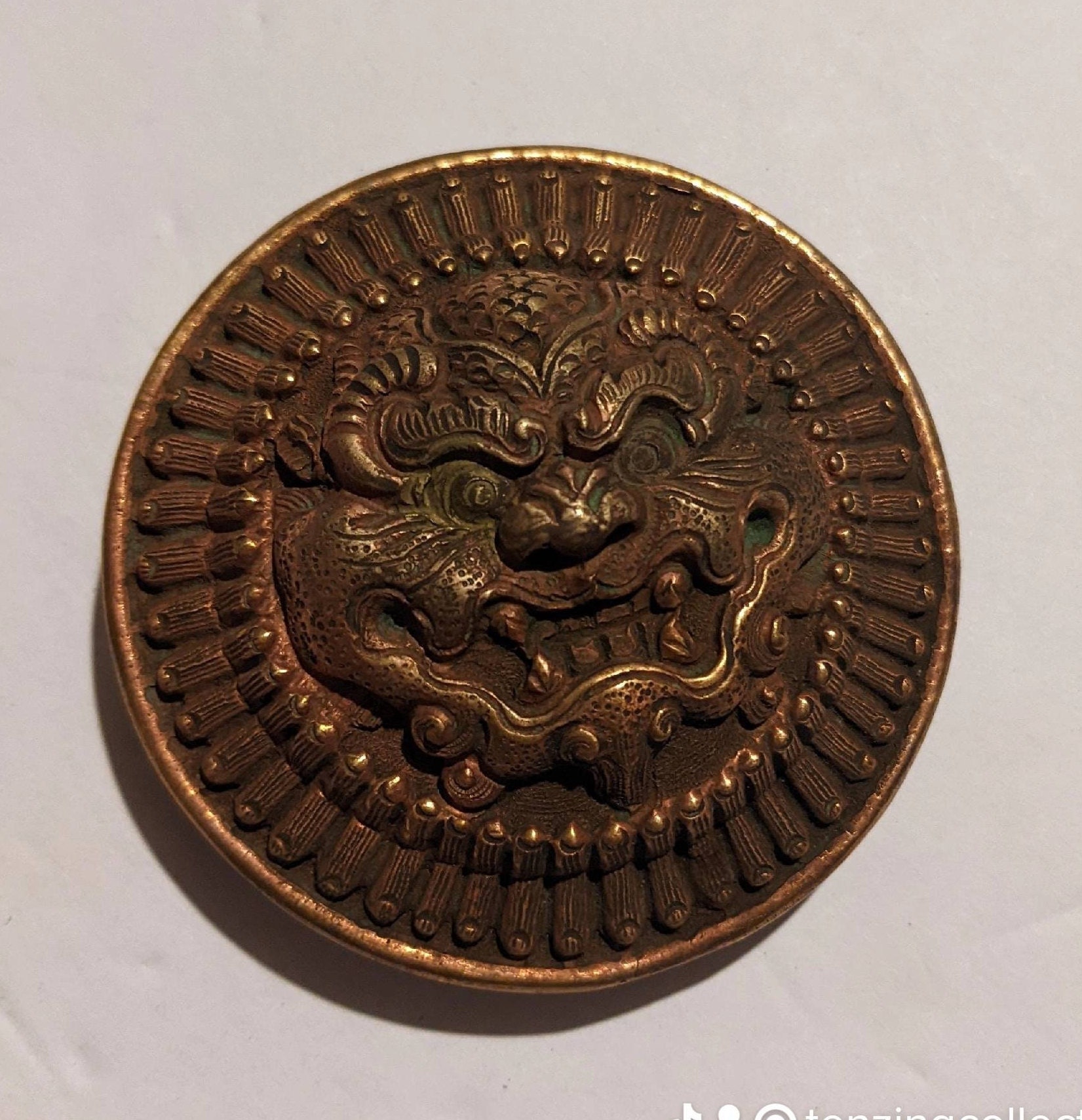
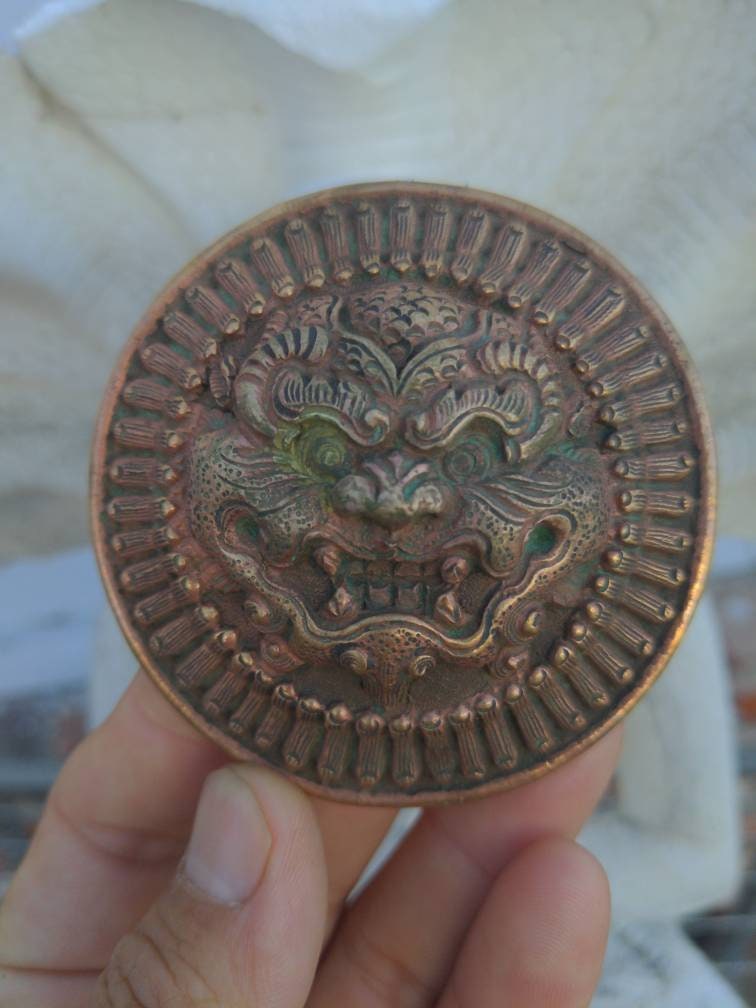
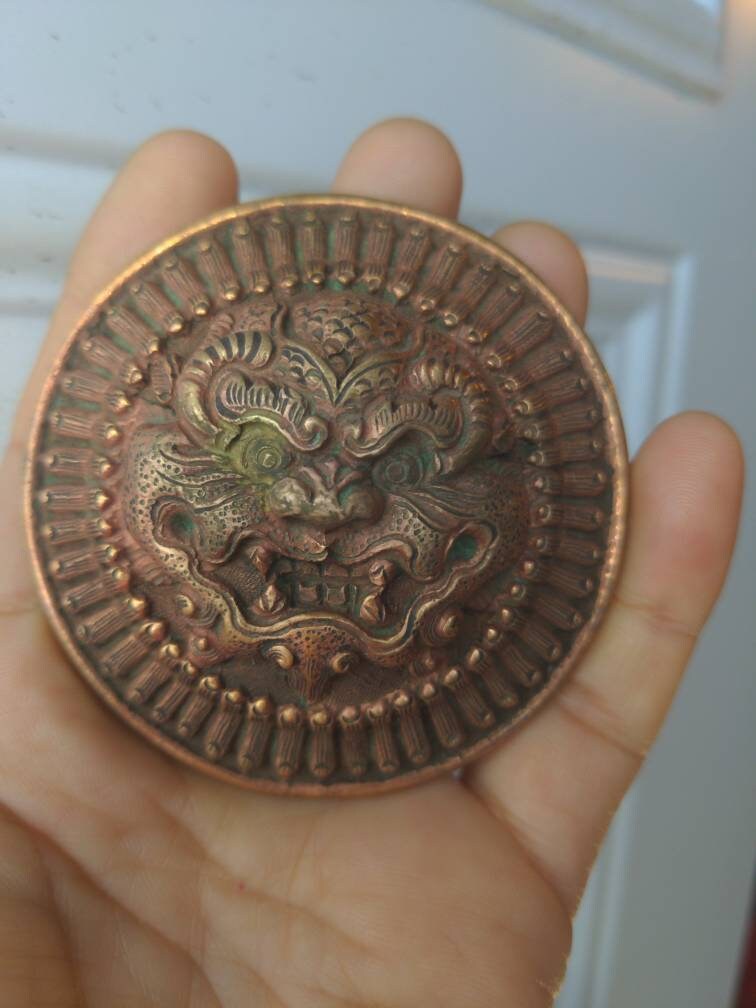
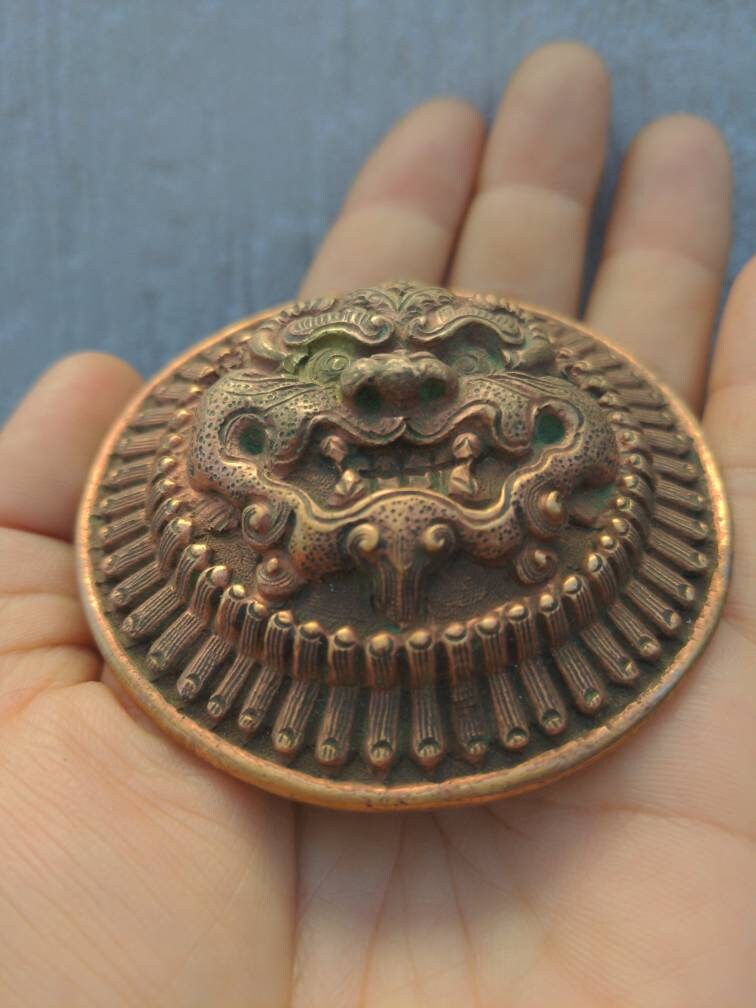
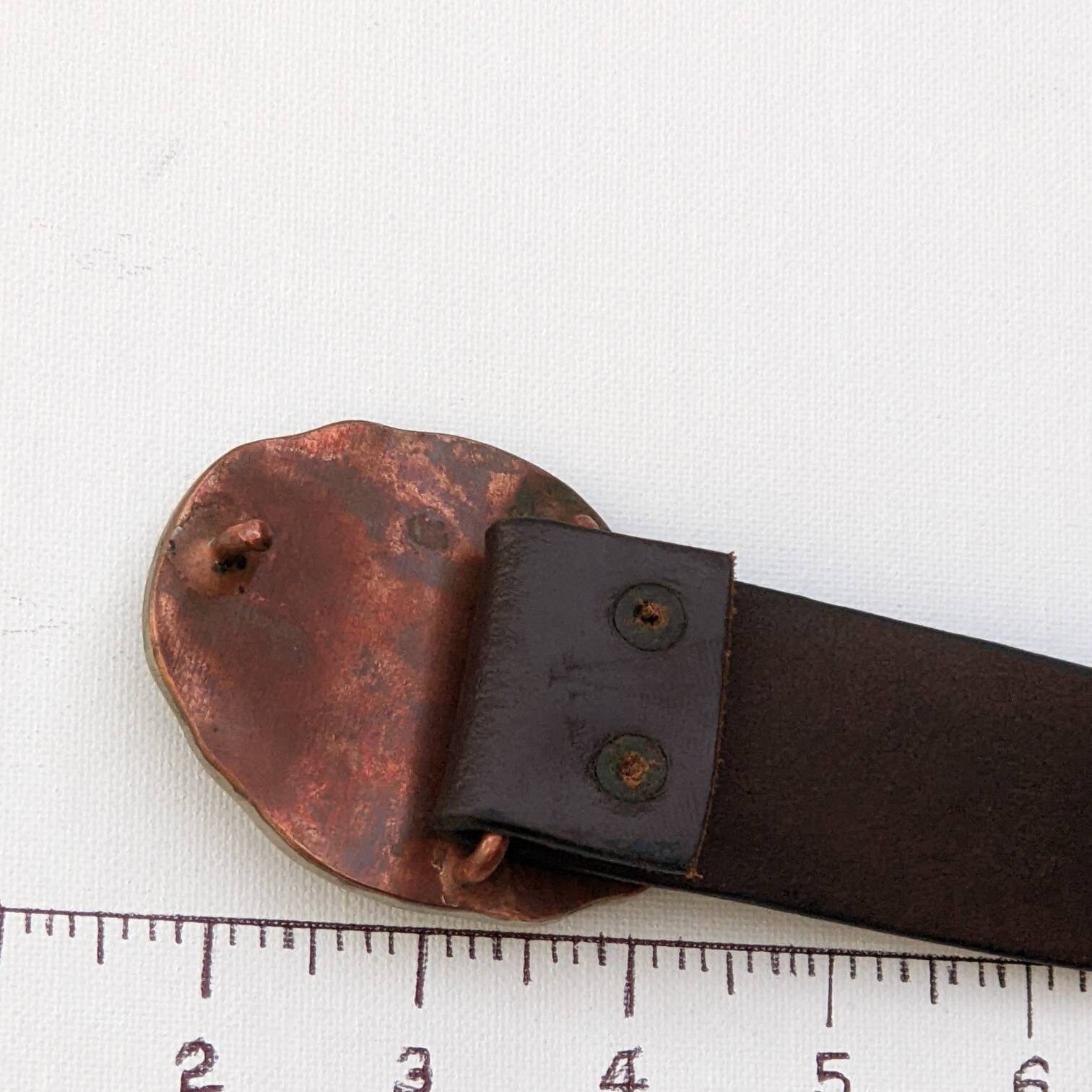
$150.00
Exotic Tibetan Chhepu copper Belt Buckle
It's Beautiful Handmade Authentic Tibet Belt Buckle It's Totally Handmade Carved Its Beautiful Quality
Design Chhepu
Size 3inches x 3inches
Material 100% copper
Weight 4.6oz
who is Chhepu
Chhepu – The Mythical Creature
Chhepu is one among the three brothers Garuda, Chhepu and Hiti Manga. It is told that once the mother of these brothers, requested her husband to give birth of such a son who would be the bravest, most truthful and entitled with all superior marks. Her husband told her to wait for a certain period. She being impatience to wait for a long period, looked the nest whether he was born or not. She found Chhepu in a prematured condition only with formation of head.
Chhepu Ghau Pendant Prayer Box
Chhepu Ghau Pendant Prayer Box
Chhepu is depicted in his wrathful appearance devouring showing only half of Chhepu’s body and devouring Naga(snake).
It is also told that Chhepu disappeared from the world as he did not want to see the kaliyuga, the great yuga, when the evil would completely triumphant over the good and the world would be destroyed by Vishnu in his incarnation as kalki, the destroyer. Knowing his bravery, truthfulness and entitled with all the superior marks Manjushree wanted to see him and requested him to show his full form. He appeared slowly amidst the cloud. Manjushree, as an veteran artist, immediately drew his form by his foot secretly without the knowledge of Chhepu. When Manjushree could finish to draw his head only he came to know Manjushree’s deception and immediately disappeared. Due to his bravery, truthfulness and all superior marks, he was given the place at the top of the main entrance of the shrines for the protection from all the dangers. Nagas(serpents) are the food of Chhepu.
Along the stories of Manjushree, comes an interesting and fascinating story attached to Chhepu – The Mythical Creature:
Long time ago, the Kathmandu Valley was only a huge lake inhabited by the countless number of aquatic animals. The majority of them were the Nagas (serpents). So this valley was also known as Naga Daha, meaning the “Home of the Serpents’.
One day Manjushree Bodhisattva (a Buddhist god from China) came to visit this valley. He liked the valley. He liked the valley so much that he wanted to make a beautiful town out of it . With this intention he immediately cut through the southern hill of the valley with one stroke of this his legendary sword (Chandrahara) and drained off the water. This compelled all the inhabitants of the lake to leave, as they could not do anything against the almighty Manjushree. But a creature called Chhepu stayed put. When by his yogic power Manjushree sensed that there was someone still hidden somewhere under the remnant of the lake, he commanded the latter to leave the water instantly. He was terrified when he saw that he could not go against the power of Manjushree. So, he said he would leave the lake if Manjushree would promise not to look at his horrible feature when he moved out of the lake. According to the promise, Manjushree closed his eyes and Chhepu prepared to come out of the water. As the fear-stricken creature pushed half of his ugly body above the surface, Manjushree could not help but open eyes stealthily, out of curiosity. When Chhepu saw Manjushree open his eyes, he got so upset that he quickly dived back deep under the water to hide himself again. Manjushree, ashamed of breaking his promise, soon negotiated with Chhepu assuring him that he would never bother again to seen by anyone). He also promised that he would allow him to occupy a very significant place in the holy temples of Nepal (he was going to build up soon in the valley) and remain there half-hidden forever.
This story seems to explain a lot about our architectural tradition of showing only half of Chhepu’s body above the tympanums of the temple doorways. Whether this mythical story contains any grain of truth or not matters the least. What counts in the cultural value it reflects and the artistic fascination it leaves for one and all to understand and appreciate.
Posted in Buddhist Iconography, Iconography
Shipping from United States
Processing time
1-2 business days
Customs and import taxes
Buyers are responsible for any customs and import taxes that may apply. I'm not responsible for delays due to customs.
Payment Options
Returns & Exchanges
I gladly accept returns, exchanges, and cancellations
Just contact me within: 14 days of delivery
Ship items back to me within: 30 days of delivery
Conditions of return
Buyers are responsible for return shipping costs. If the item is not returned in its original condition, the buyer is responsible for any loss in value.
Questions about your order?
Please contact me if you have any problems with your order.